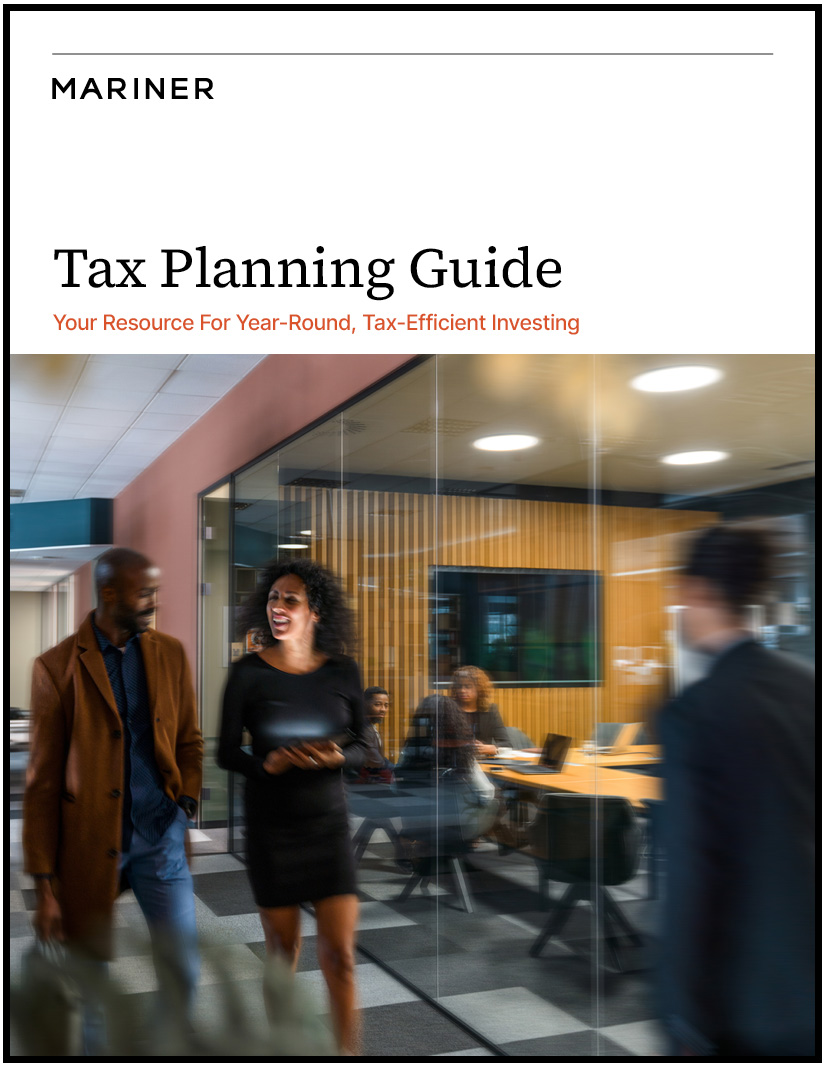Potential Impacts of Biden’s Proposed Tax Policy on High-Net-Worth Individuals

With Joe Biden now president, many wonder how his proposed tax policy might impact high-net-worth individuals. Here’s an overview of a few of his proposals but remember, none of these proposals are guaranteed to become law.
We offer strategies to consider but recommend that you meet with your wealth management team first before making any changes to your financial plan, especially in light of a proposed tax policy. It may not make sense for you to make any changes in the near term.
Tax on the Wealthy
Biden’s plan calls for rolling back tax cuts for those who make more than $400,000 annually. He wants to raise the highest personal income tax rate back up to 39.6%. It had been lowered to 37% under the Tax Cut and Jobs Act of 2017.
The proposal would also cap the tax benefit of itemized deductions to 28% of value for those earning more than $400,000, so taxpayers earning above that amount with tax rates higher than 28% would face limitations on itemized deductions.
If you currently have lower income than normal or are anticipating potentially higher tax rates, it could be worth considering rolling over a portion of your traditional IRA to a Roth IRA, either in one year or over a period of years, as you will be taxed at the time of conversion. Any distributions you subsequently take from the Roth won’t be taxed. You also won’t have to take a required minimum distribution from a Roth IRA. The other benefit is that, at death, if you leave your Roth IRA to a beneficiary, such as a child, that child won’t pay taxes on distributions either.
Increasing Capital Gains Tax
The Biden plan also proposes increasing the capital gains tax rate on those earning above $1 million to 39.6% and eliminating the “step-up in basis” that presently lets heirs avoid income taxes on gains accumulated before death, which would potentially mean more taxes on wealth passed to heirs.
To calculate capital gains tax liability, realized capital gains are netted against realized capital losses. Long- and short-term capital gains can be used to offset each other. If you choose to use the tax loss harvesting strategy to offset large gains realized during the year, you may consider selling any assets with unrealized losses to lock them in.
For losses greater than your gains, it’s possible to deduct $3,000 per year against your ordinary income (for single filers, married filing jointly or head of household filers) and carry the excess losses forward to future years.
Reducing Estate & Gift Tax Exemption; Increasing Estate Tax
The 2020 estate and gift tax exemption amounts is $11.58 million per person (double that for a married couple). Biden is proposing that the estate and gift tax exemptions be reduced. According to the Tax Foundation, as of October 2020, the proposed estate tax exemption would be lowered to $3.5 million and the gift tax exemption would be reduced to $1 million. Some are concerned that Biden will accelerate the 2025 sunset provision on current exemptions.
In addition, the estate tax is proposed to increase from 40% to 45%. If you have sufficient assets to meet your living expenses, you might consider making gifts now to work toward the current lifetime exemption amount sunsetting in 2025 or potential accelerated reduction under the Biden proposal.
Per the IRS, each individual can give up to $15,000 per year per beneficiary without cutting into the lifetime gift tax exemption amount. You can also choose to put gifts into an irrevocable trust to receive distributions over your lifetime or for your beneficiaries but making that gift likely comes at the cost of not having further control over the asset.
You might also consider charitable giving through vehicles such as a donor-advised fund, which gives you an immediate tax deduction while you take time to decide the eligible charities to which you want to transfer some of your wealth.
Reduction in After-Tax Income
According to the Tax Foundation, “On a conventional basis, the Biden tax plan by 2030 would lead to about 7.7% less after-tax income for the top 1% of taxpayers and about a 1.9% decline in after-tax income for all taxpayers, on average.”
Time Will Tell on Tax Policy
Keep in mind, a lot of factors, including which party has control of the Senate, as well as focus on a new pandemic-related stimulus bill, will likely influence the final Biden tax policy. What’s mentioned here is what the president-elect has proposed. The Urban- Brookings Tax Policy Center says it assumes that implementation of most of Biden’s proposals might be delayed until 2022, but only time will tell.
Consider Meeting With Your Wealth Advisor
In the meantime, year-end is a good time to review your wealth management plan. At Mariner, your wealth advisor collaborates with in-house tax, insurance, estate planning and trust services teams to take a holistic view of your finances and to offer advice on how to minimize the impact of taxes with a goal of protecting your wealth and allowing you to leave a legacy.
Tax Guide: Your Resource for Year-Round Tax-Efficient Investing
Year-round planning with an advisor could help improve your overall wealth plan. Find out more by downloading our tax guide.
Sources:
“Businesses, Wealthy Brace for Biden Tax Hikes,” thehill.com.
“Details and Analysis of President-Elect Joe Biden’s Tax Plan,” taxfoundation.org.
“Frequently Asked Questions on Gift Tax,” irs.gov.
Some services listed in this piece are provided by affiliates of MWA and are subject to additional fees. Additional fees may also apply for tax planning and preparation services.
The views expressed regarding IRA Rollovers are for commentary purposes only and do not take into account any individual personal, financial, or tax considerations. It is not intended to be a solicitation to buy or sell or engage in a particular investment strategy. Before initiating a rollover, please consult with a financial or tax professional.
This article is limited to the dissemination of general information pertaining to Mariner Wealth Advisors’ investment advisory services and general economic market conditions. The views expressed are for commentary purposes only and do not take into account any individual personal, financial, or tax considerations. As such, the information contained herein is not intended to be personal legal, investment or tax advice or a solicitation to buy or sell any security or engage in a particular investment strategy. Nothing herein should be relied upon as such, and there is no guarantee that any claims made will come to pass. Any opinions and forecasts contained herein are based on information and sources of information deemed to be reliable, but Mariner Wealth Advisors does not warrant the accuracy of the information that this opinion and forecast is based upon. You should note that the materials are provided “as is” without any express or implied warranties. Opinions expressed are subject to change without notice and are not intended as investment advice or to predict future performance. Past performance does not guarantee future results. Consult your financial professional before making any investment decision.
Mariner is the marketing name for the financial services businesses of Mariner Wealth Advisors, LLC and its subsidiaries. Investment advisory services are provided through the brands Mariner Wealth, Mariner Independent, Mariner Institutional, Mariner Ultra, and Mariner Workplace, each of which is a business name of the registered investment advisory entities of Mariner. For additional information about each of the registered investment advisory entities of Mariner, including fees and services, please contact Mariner or refer to each entity’s Form ADV Part 2A, which is available on the Investment Adviser Public Disclosure website. Registration of an investment adviser does not imply a certain level of skill or training.


